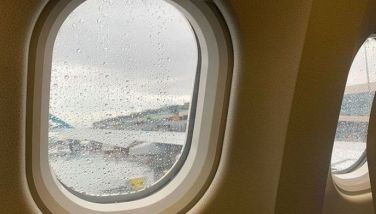Federation of Philippine Industries seeks higher import tariffs for critical products
MANILA, Philippines - The government must raise import tariffs on critical products to give local manufacturers a chance to compete against foreign competition, the Federation of Philippine Industries (FPI) said.
FPI president Jesus L. Arranza said that the lull in the World Trade Organization (WTO) Doha Round is a perfect opportunity for the country to use the Philippines’ available policy space to raise the tariffs on critical products up to their bound rate limits.
Arranza said that the government now has the opportunity to give local manufacturers the much-needed reprieve and be more competitive against imported competition by raising the country’s applied rates without going against the WTO rules.
“Under the WTO, you can raise tariffs as long as you will not go beyond the bound rates. This is a valid move and is accorded to any country within the WTO agreement,” Arranza explained.
He said the Philippines should not hesitate to do this now because other countries are also raising their tariff barriers as a way to help their respective domestic industries survive the crisis.
He warned that if the Philippines will not raise its applied rates now and wait for the WTO-bound rates to go down again with the conclusion of the Doha Round, the country will not be able to enjoy the huge policy space that it has at the moment.
For non-agriculture products, the average bound rate is 23.4 percent while the country’s average applied rate is seven percent. This means the country has a wide policy space of 16.3 percent.
For agriculture products, the average bound rate is 34 percent, while the applied rate is 11 percent. The agriculture policy space is 23 percent.
For some critical petrochemical products, the average applied rate is 15 percent. Sacks for example, has a bound rate of 30 percent, while the Philippines only imposes 15-percent tariff for these.
In fact, Arranza cited that even the United States, which is the champion of globalization, has included in its law a “Buy American” clause that mandates the use of US-made steel products for government-funded projects even if it would mean a 25-percent hike in cost.
“As the saying goes, ‘we should not be more popish than the Pope.’ If the US and the other countries are protecting their domestic industries, why can’t the Philippines do it also? The Philippines should not fear retaliations from other countries,” he said.
Likewise, the US has provided assistance to its steel manufacturers in invading markets by giving a 13- to 17-percent rebates to Chinese exporters.
At the same time, Arranza said it would help the economy if the government agencies take the lead in prioritizing locally made products in their procurement.
- Latest
- Trending



























